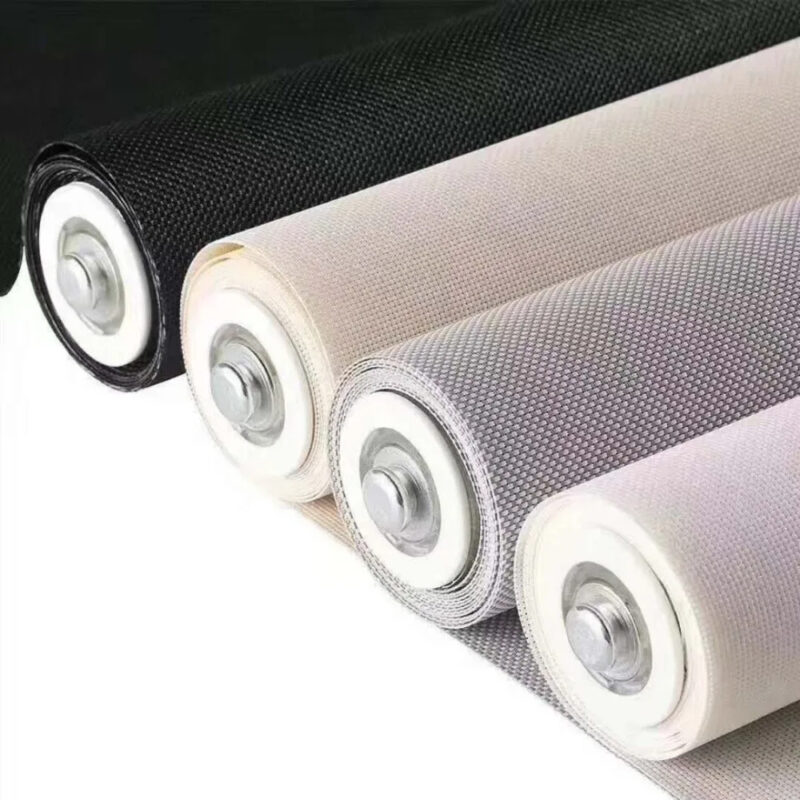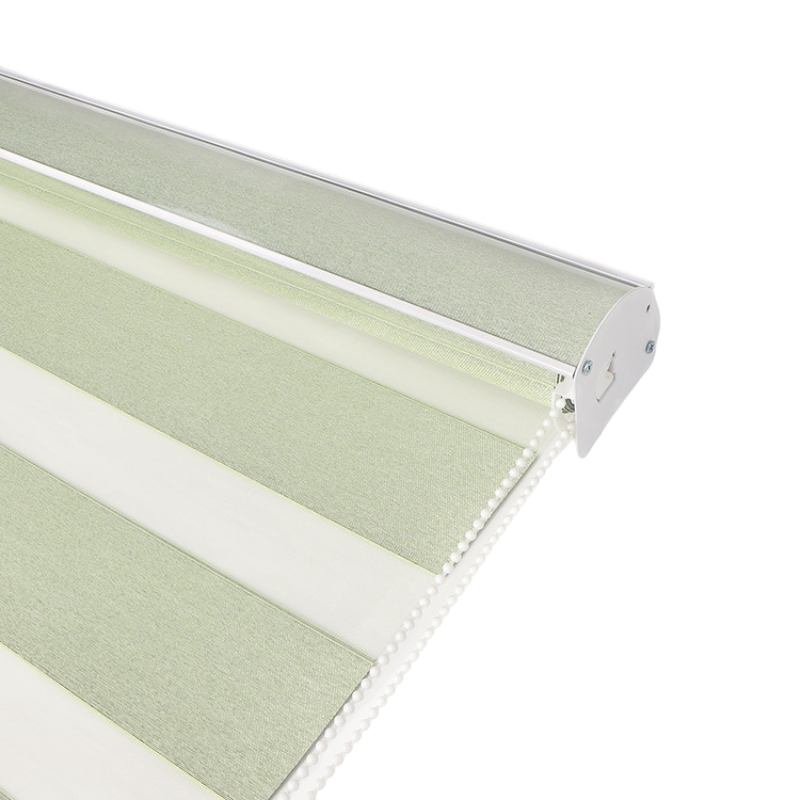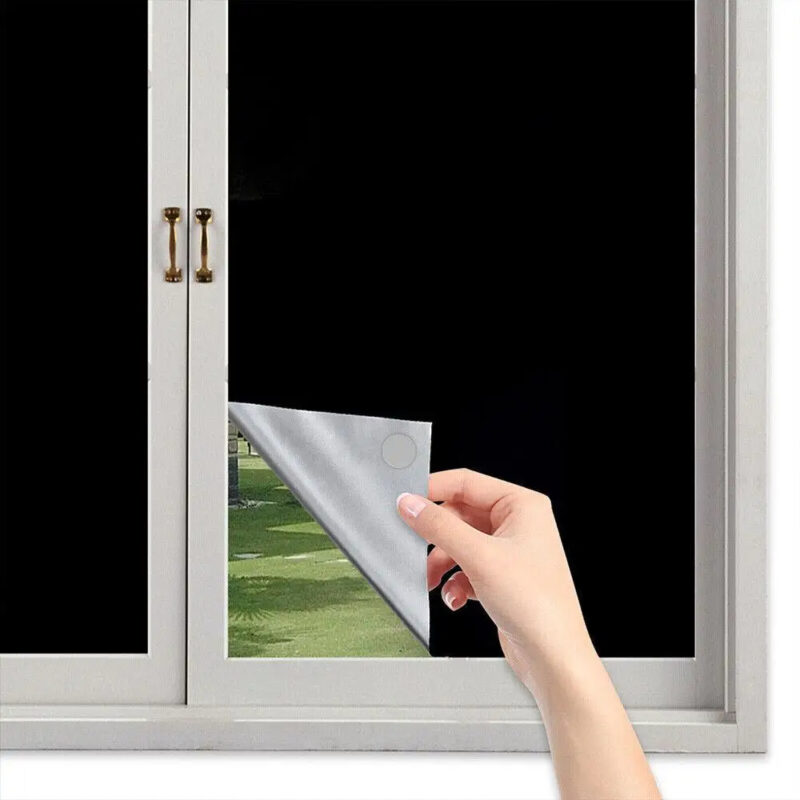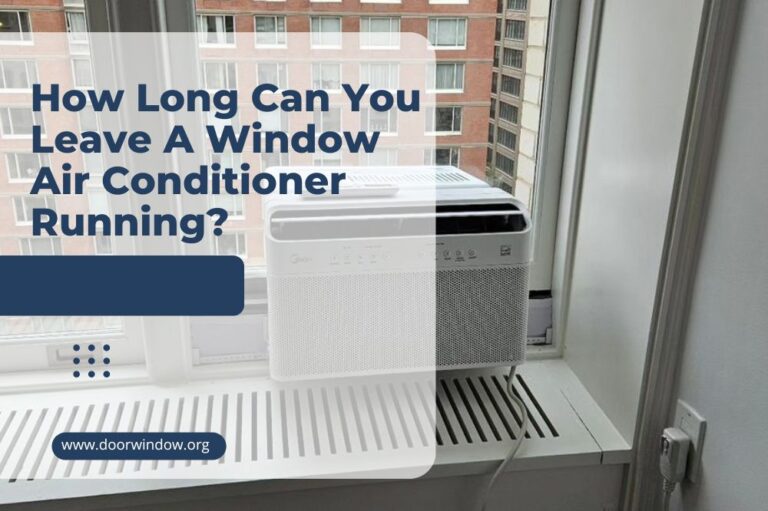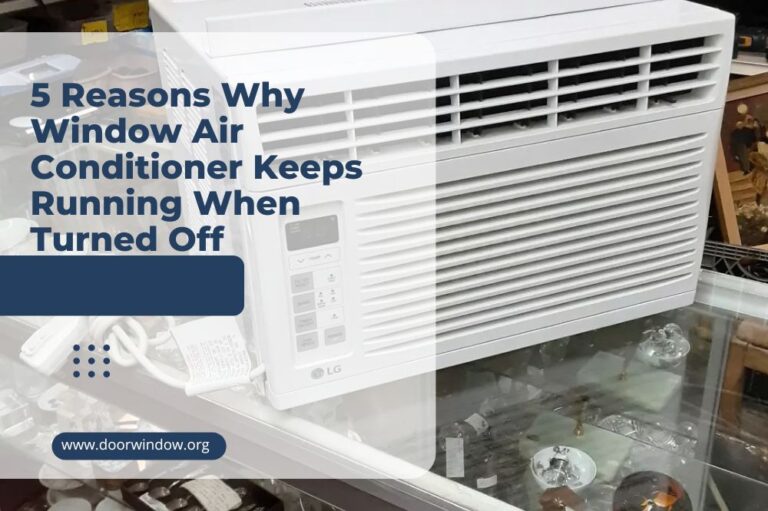Why Does My Window Air Conditioner Smells Like Ammonia? (Causes & Solutions)

Your window air conditioner can smell like many things.
It can smell like paint thinner or other chemicals, which is caused by a refrigerant leak in the refrigerant lines and can even be heard thanks to hissing and bubbling sounds depending on the severity of the leak.
It can also have a vinegar-like odor or smell like rotten eggs, which is also known as dirty sock syndrome.
But there is another unpleasant smell that will make AC owners go mad: the smell of ammonia. If you own one, you might have come across this phenomenon and wondered why the window air conditioner smells like ammonia.
Keep reading this article to find out not only what are the most common six causes of it but also what ammonia smells like and how to get rid of the smell from your air filters.
Window Air Conditioner Smells Like Ammonia
What Does Ammonia Really Smell Like?
Ammonia is a colorless gas with a characteristic smell. It is obtained by direct synthesis from the constituent elements (nitrogen and hydrogen) under elevated pressure and at a higher temperature.
After this short chemistry lesson, we move on to a more important question: do you know what ammonia smells like?
Well, you are most likely familiar with its smell, but it is possible that you know it by another name or description.
Many people describe its “scent” as the stench of cat urine, which is why people complain that their air conditioner smells like cat pee.
The other description you will hear is that the air conditioner smells musty or earthy. That is due to the accumulation of mold, which is otherwise the most common reason for the appearance of this smell.
What Are The Causes Of Ammonia Smell In Window Air Conditioners
Let’s look at the most common causes of ammonia smell in window AC units!
1. Dirty Ail Filter
The filters inside the air conditioner are designed to collect dirt, dust, and microbes. Still, if they are not regularly maintained, they can become clogged and begin to accumulate moisture, mold, mildew, and bacteria, which is not good for you or your air conditioner.
And mold and mildew are the reasons why you have a smelly air conditioner. More precisely, mycotoxins (in Greek, mykes means fungus while toxicon means poison), secondary metabolic products synthesized by molds during growth, are the ones whose smell is felt.
Clogged, dirty filters block the airflow and reduce the air conditioner’s efficiency and indoor air quality. By obstructing the normal flow of air through the filter, dirt is directly transferred to the heat exchanger, which reduces the heat absorption capacity.
All of this means that the air conditioner’s electrical energy consumption can increase by up to 15% if its air filter is not cleaned and replaced on time.
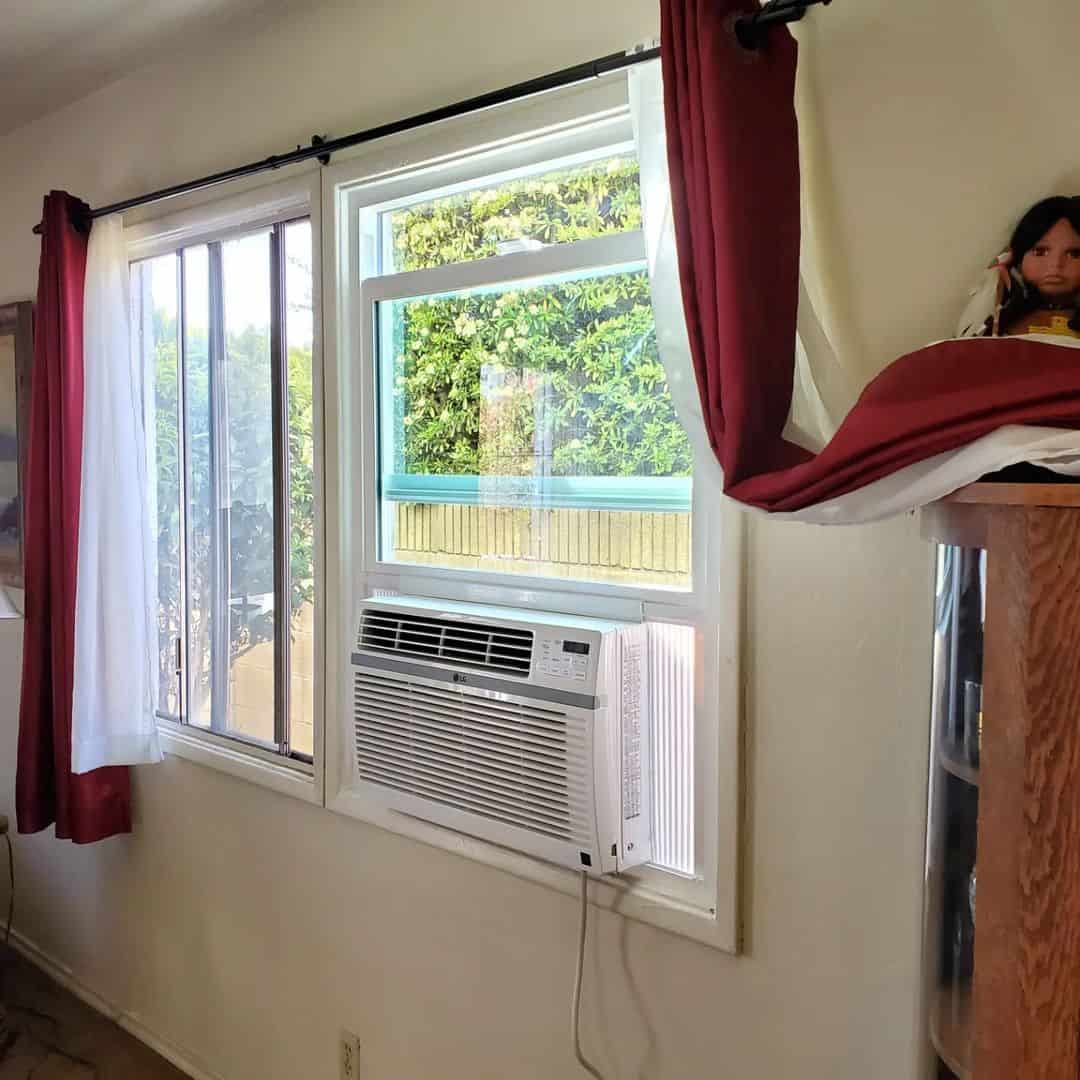
2. Clogged Condensate Drain Line And Drain Pan
If you carefully read the subtitle above, you will notice the word condensate. Condensate means moisture, and who likes moisture? Of course, mold and mildew, which is why the drain line and pan represent an ideal environment for their growth.
In order for your air conditioning unit to do its job, it needs to properly suck up heat and humidity from your home and release it outside.
It does this by absorbing and condensing the humidity, which is later sent to the drip or condensate pan from where it will go out via drain lines.
But if there is a clog due to dirt and debris, the moisture will remain in the drainage system and give an opportunity for mold to form, which will naturally lead to a moldy air conditioner.
3. Could It Really Be Pee?
We said that some people describe the smell of ammonia as the smell of animal urine, especially cat urine. If your AC unit smells like that, one of the possible reasons for that is that some small animal has done a number one in it.
Most often, these are rodents for which air conditioners are ideal places since they are warm and dark places that provide them with protection and shelter from people.
If this is really the case, then apart from the fact that you will have to deal with the cleaning and repair of the air conditioner, you will also have to solve the mice or a similar pest problem.
4. Animal Carcass
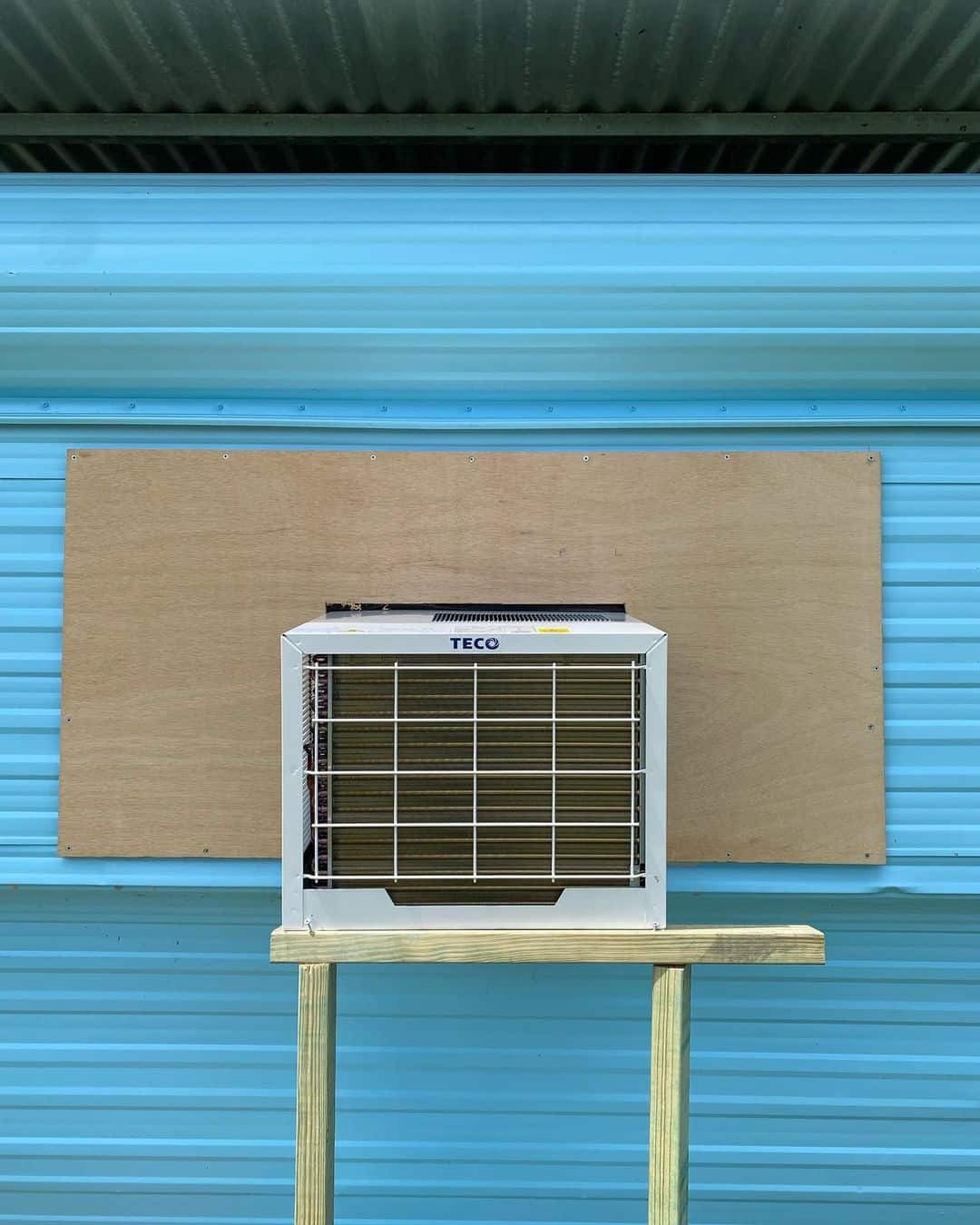
Whether they die of natural causes or are poisoned, rats and bandits and bandits alike very often “choose” to die in places that are away from the eyes of the public, one of such places being air ducts.
Apart from the fact that it is not a pleasant sight to behold, a decomposing animal body emits a foul smell causing not only the air conditioner to smell bad but also spreading throughout the house.
5. Problems With The Ductwork
Another place where mold can develop and the ammonia smell from air conditioners can appear is air ducts.
Leaks, a large difference in temperature between the temperature of the air in the vents and the air in the room, clogged ducts, and the previously mentioned problems with air filters and condensate pans and lines are the most common reasons for the accumulation of moisture in the ductwork.
Mold does not discriminate and care what exactly causes moisture to form. The important thing is that it is there because mold can only thrive in such an environment, which of course, leads to the appearance of an air conditioner mildew smell.
6. Filthy Evaporator Coil
Last but not least, a powerful ammonia odor means there may be something wrong with the evaporator coils.
When we mentioned the drain line and pan, we said that the central air conditioner system condenses absorbed heat before transferring it outside. This process takes place over the evaporator coil.
These aluminum, steel, or copper coils contain refrigerant or freon, as it is also known, which cools the warm air and turns it into droplets of water.
As was the case with the previous parts of the air conditioner, the accumulation of big amounts of dust and dirt on the coils due to long-term operation and irregular or non-existent maintenance, combined with the fact that AC units operate in damp and dark conditions, gives a chance for mold to form.
How to Clean A Moldy Air Filter in Your Window Air Conditioner?
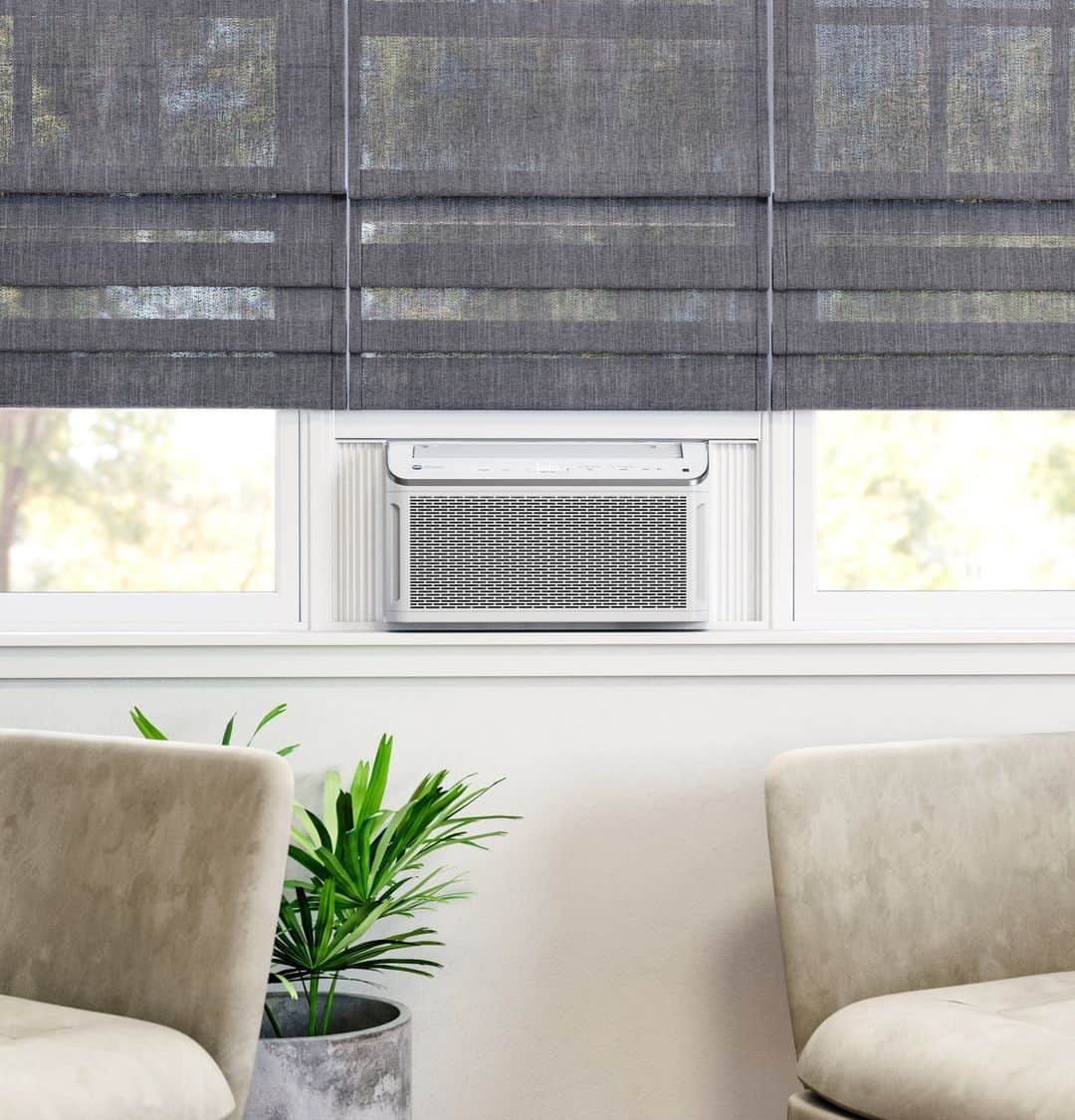
Before we explain how you can clean a moldy air filter, it is essential to mention that the best solution when it comes to malfunctions and problems concerning your home air conditioner is to call an HVAC technician.
After all, that is a person whose job is to know everything about air conditioners, which is why hiring them reduces the possibility of something going wrong to a minimum.
If, however, you really want to clean the air filter yourself, which is otherwise the easiest part of AC units to reach and clean, follow the next few steps.
Step 1:
Unplug the air conditioner
Step 2:
Wear safety gear such as a mask, glasses, and gloves
Step 3:
Take the air conditioner outside so that the unpleasant mold smell from it does not spread throughout the house when you open it
Step 4:
Remove the cover/grille of the AC unit by first unscrewing the screws with a screwdriver and only then removing the cover
Step 5:
The first thing you will see after removing the cover is the air filter you need to take out.
Step 6:
In case you have one-use air filters, there will be no need for cleaning and washing, as you simply have to change the filter (and skip the next step).
Step 7:
Leave the air filter to soak in a mixture of soapy water and bleach for at least 15 minutes (the ratio of water to bleach should be 10 to 1). After that, thoroughly rinse the filter with water to wash all the mold and bleach out.
Step 8:
While the filter is soaking, vacuum all the dust and dirt from inside the window air conditioner.
Step 9:
Make another mixture of soapy water and bleach. Then dip a sponge in it and use it to clean and wipe all parts affected by mold.
Step 10:
Wash the cover/grille so that the air passage openings do not start getting dirty immediately.
Step 11:
Before reassembling the unit, dry the air filter well and give enough time for the inside of the window air conditioner and its cover to dry out.
Conclusion
Now you know why the air conditioner smells bad. And by bad, we mean ammonia. This smell is almost a sure sign that you have mold growth somewhere in your window air conditioner or its system. The places where you should look for that growth are air filters, drain pans and lines, evaporator coils, and air ducts.
Situations that are less likely to occur but can still cause the ammonia or cat pee-like odor to come out of your window air conditioner are animal urine or decomposing body.
Hopefully, you have found this article helpful in trying to discover the causes behind the ammonia smell from the AC. If you still need any kind of help regarding this topic, please shoot us a comment!

